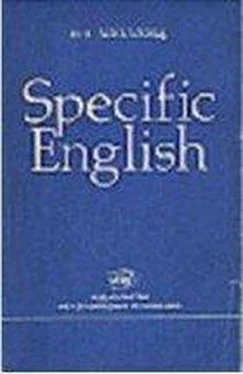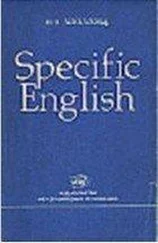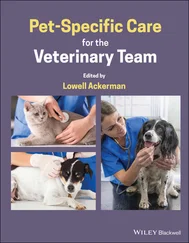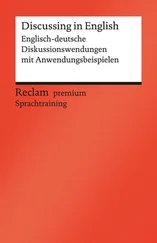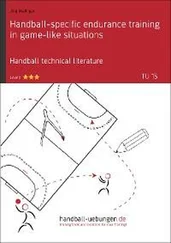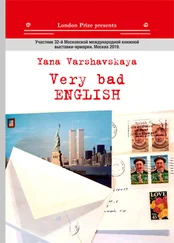V. Замените выделенные курсивом слова наречиями на -lу. Переведите предложения на русский язык.
1. She cast an appealing look at the two girls. 2. Giggling, he called Miss Gray a fool. 3. With ablush she told him about her error. 4. She thought with despair that she had failed. 5. With unseeing eyes he was staring into the fire. 6. The music was so loud that it could drive one mad. 7. Delegations inspected the new tool with admiration. 8. Her husband became more and more moody and bad-tempered. 9. To his surprise, the response was mild compared with the asperity of a few minutes earlier. 10. The causes with which Cindy involved herself were so similar as to be depressing. 11 . Stammering, he assured her that he had no intention of hurting her feelings. 12. It surprised her that his hands were so gentle. 13. She banged her brush against her temple so that it hurt. 14. As was alleged, they have signed a secret treaty. 15. As reported, the goods have been despatched. 16. Bosinney replied with a smile: «Oh, no!»
VI. Переведите следующие предложения на русский язык, обращая особое внимание на перевод наречий на -lу.
1. The country was hard up financially. 2. Tevis sat centrally in the radar room on a high stool. 3. She was not basically unkind. 4. That was substantially a day of Stahr’s. 5. We are fundamentally alike. 6. Economically, the country has no rivals on the world market. 7. Ann’s Christian piety, though doctrinally a little vague, was unwavering. 8. She saw, fragmentarily, the black square glass and the red eyes of the beating moths. 9. Hugh reflected that it was a peaceful scene, a scene even of positive innocence: an innocence to which Penn youthfully, Swann professionally, and Ann with some more subtle resonance of the spirit, contributed each their note. 10. «The New York Times» pointed out editorially… 11. The petition is being circulated nationally. 12. Under the term of lipids (липиды) are included a great diversity of naturally occurring substances. 13. Certain types of chemical substances are known collectively as mutagens. 14. These results are represented diagrammatically in figure 1. 15. There is a very big improvement on what I saw in 1966, both artistically and technologically.
VII. Переведите следующие предложения с «перенесенным эпитетом». При переводе перестройте предложения в соответствии с нормами русского языка.
1. Не raised a supercilious eyebrow when he observed that I took it with calm. 2. He shrugged a Gallic shoulder. 3. He would argue, cajole, lose his temper, start for the door in frowning anger. 4. The thought reminded him of the annoying two days he would have to wait for confirmation. 5. She relapsed into an infuriated silence. 6. The girls were sharing giggled confidences. 7. Then the train came out on the sea – lovely bays with sand and grass and trees, sloping up towards the sudden hills that were like a wall. 8. «Well, sir,«began the former, with smiling importance, «and what may–?» 9. He was sitting in dazed silence after Albert Wells’ announcement. 10. «All tied up with confessions and everything!» he said, lifting a knowing finger. 11. They did not find the trail again for an agonising ten minutes. 12. Then the laughing words of Ashley came back to her. 13. «Go and never come back!» he said, pointing a dramatic finger to the door. 14. He gave a little gulp of astonished laughter. 15. She shrugged a mental shoulder. 16. Then with a muttered curse he turned and grabbed the lever. 17. She raised an inquiring eyebrow. 18. «Well!» Milo exclaimed, with thin-lipped disapproval. «He certainly found out how wrong he was, didn’t he?» 19. This was the only topic that could rouse them out of their staring and shivering apathy. 20. I crossed an admiring heart. [9] to cross one’s heart поклясться («вот тебе крест!»)
21. His wife welcomed me into the spiced heat of the oven room. 22. Clearing a place on her work-table, Mrs County set me down to a cup of coffee and a warm tray of cinnamon rolls. 23. They swaggered up the path. First, Junuis Candle, his Sheriff’s star winking in the dusk; and after him, Big Eddie Stover, whose squint-eyed search of our hiding places reminded me of newspaper picture puzzles. 24. Jose withdrew to the front room, where he released his temper on the snooping, tiptoeing presence of Madame Spanella. 25. He saw a twinkle of amusement in Cooper’s eyes, and he flushed an angry red. 26. John murmured a rapturous assent. 27. His firm chin and the buttoned strictness of his black coat conveyed an appearance of reserve and secrecy.
VIII. Преобразуйте следующие предложения таким образом, чтобы употребить «перенесенный эпитет». Переведите их на русский язык.
1. Her lips on his could tell him better than all the words she stumbled. 2. Obstinately Valentin relapsed into silence. 3. And he lifted his finger warningly. 4. When, at last, they stood together to be married, her little hand confidingly in his, he still did not know how it all came about. 5. Surprised, he drew a sharp breath. 6. When we got into the street Isabel smiled and gave me a sidelong glance. 7. Elliott raised an eyebrow disapprovingly. 8. He shrugged his shoulder with a tolerant air. 9. After the first shock of astonishment and anger she tried to persuade herself that she could have understood, and so have forgiven, if he had fallen in love with a girl. 10. She slid past Hugh murmuring «Good-morning». 11. Aristide smiled in his roguish way and raised his hand deprecatingly. 12. He raised his eyebrows in surprise.
В английском языке существует два вида определений: препозитивное и постпозитивное. Наибольшее распространение в английском языке получил первый вид определения, а именно препозитивное. Англичане как бы стремятся к тому, чтобы появление того или иного предмета в нашем сознании не было абстрактным, не подготовленным конкретными определениями, теми или иными ограничителями. Этим обусловлено обязательное наличие какого-либо детерминатива перед существительным. Отсюда же проистекает развитие атрибутивного употребления существительного в препозиции к другому существительному: the table top, a shop door и цепочки определений: a strict never-to-be-late warning.
Англичане избегают формы the door of a shop и ставят слово shop перед определяемым словом, вначале называя тот реальный предмет, принадлежностью которого является определяемое слово.
Насколько употребительными в английском языке являются такого рода определения, видно, в частности, из того факта, что в ряде случаев они срастаются с определяемым существительным и становятся уже самостоятельной единицей. Характерно в этой связи, что многие сложные слова, состоящие из двух существительных, имеют различное написание: раздельное, через дефис или слитное. В целом ряде случаев сосуществуют эти три вида написания. Например: school year – school-year – schoolyear; movie goer – movie-goer – moviegoer; note-book – notebook; country-side – countryside и т. д. То, что прежде было свободным сочетанием двух слов – определения и определяемого, выраженных существительными, стало сложным словом. Этот процесс активно продолжается сейчас в английском языке, и, таким образом, колебания в написании этих слов не случайны.
Читать дальше
